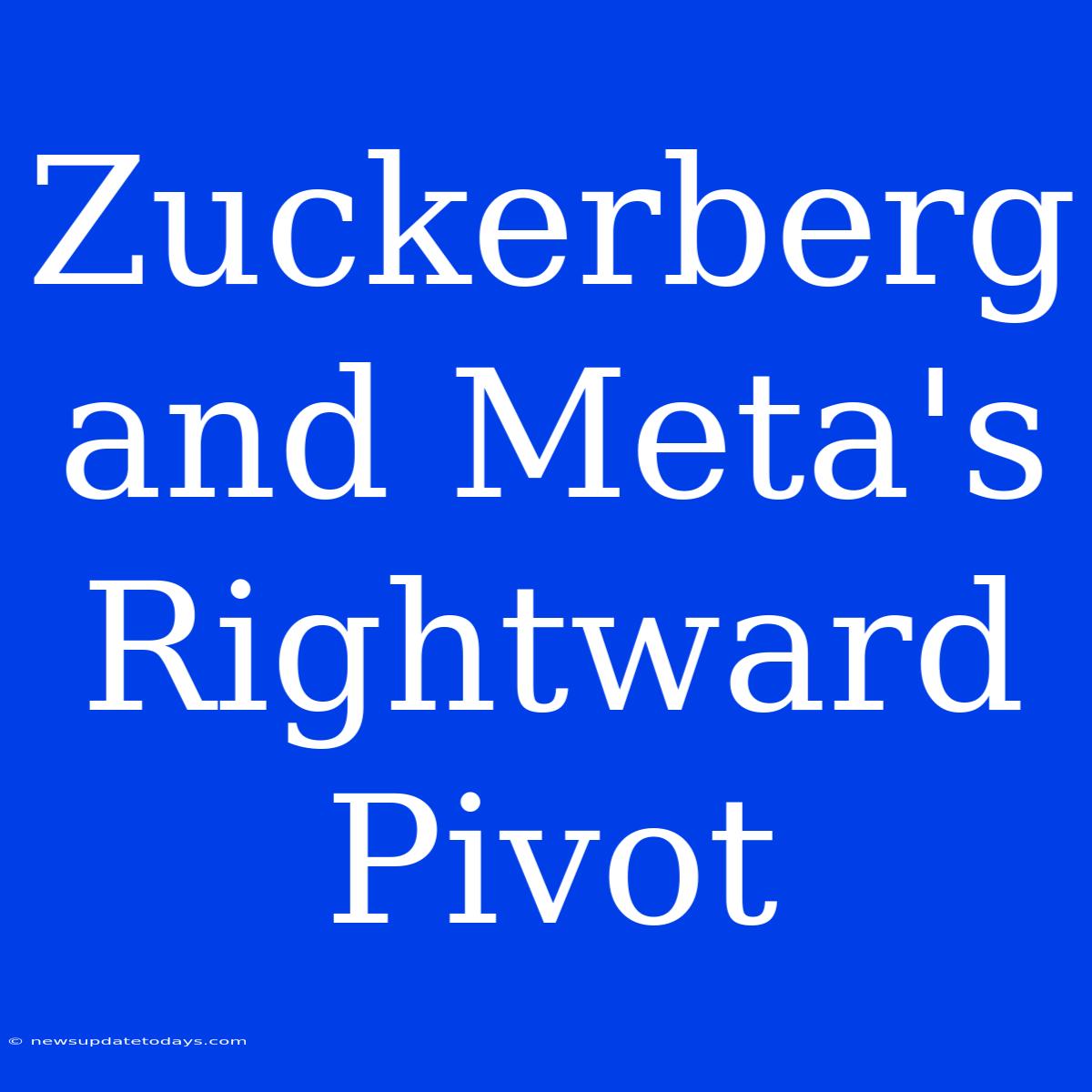Zuckerberg and Meta's Rightward Pivot: A Shift in Strategy or a Sign of the Times?
Mark Zuckerberg's Meta has undeniably undergone a significant transformation, often described as a "rightward pivot." This shift, however, is multifaceted and warrants a closer examination beyond simplistic labels. Is it a strategic maneuver to appease a specific demographic, a response to evolving societal trends, or something else entirely? This article delves into the evidence and explores the potential implications of Meta's changing landscape.
The Evidence of a Rightward Shift:
Several factors contribute to the perception of Meta's rightward pivot:
-
Content Moderation Policies: Critics argue that Meta's content moderation policies have become increasingly lenient towards conservative viewpoints, particularly concerning misinformation and hate speech. While Meta maintains its commitment to combating harmful content, the perceived inconsistencies and perceived bias have fueled this narrative.
-
Political Advertising: Meta's approach to political advertising has also drawn scrutiny. While aiming for transparency, the platform's vast reach allows for the dissemination of potentially misleading or divisive political messages, raising concerns about its role in shaping public discourse.
-
Employee Concerns: Internal documents and reports from former employees suggest a growing disconnect between Meta's stated values and its practical application, particularly concerning the handling of controversial content. These accounts often highlight internal pressure to prioritize growth and engagement over ethical considerations.
-
Algorithmic Bias: The algorithms that govern Meta's platforms are constantly evolving. While unintentional, inherent biases within these algorithms could disproportionately amplify certain viewpoints, potentially contributing to the perception of a rightward lean.
Why the Shift? Potential Explanations:
Several factors could be driving Meta's apparent rightward pivot:
-
Political Landscape: The increasingly polarized political climate globally may influence Meta's strategies, with the company potentially seeking to avoid alienating a significant portion of its user base.
-
Financial Incentives: Maintaining a large and engaged user base is crucial for Meta's financial success. Appeasing specific demographics, regardless of political leaning, might be perceived as a financially sound strategy.
-
Regulatory Pressures: Facing increased regulatory scrutiny from governments worldwide, Meta might be strategically adjusting its approach to content moderation to minimize legal challenges and maintain its operational freedom.
-
Competitive Landscape: The competitive landscape in the social media sphere is fiercely contested. Meta may be attempting to differentiate itself from competitors by appealing to a specific audience segment.
The Implications:
Meta's perceived rightward pivot has significant implications:
-
Erosion of Trust: A loss of trust among users, particularly those holding more liberal or progressive views, could lead to decreased engagement and a migration to alternative platforms.
-
Spread of Misinformation: A more lenient approach to content moderation could exacerbate the spread of misinformation and harmful narratives, potentially impacting elections and societal cohesion.
-
Increased Polarization: The platform's role in amplifying certain viewpoints could further polarize society, hindering productive dialogue and compromise.
Conclusion:
Meta's trajectory is a complex issue, and labeling it simply as a "rightward pivot" oversimplifies the situation. The interplay of political dynamics, economic pressures, regulatory challenges, and internal decisions contributes to the observed changes. Further investigation and transparency from Meta are crucial to understanding the full extent of its impact and ensuring a more equitable and informative online environment. The long-term consequences of this shift remain to be seen, but its significance for the future of social media and democratic discourse is undeniable.

